I am largely apolitical. I have certain strongly held beliefs, but I am disenchanted with the American two-party political system. It doesn’t represent me. I find the Democrats as absurd as the Republicans, just in different ways. (And don’t get me started about talk show hosts. I listened to Rush Limbaugh a couple of weeks ago for the first time in years. The man is a fucking idiot. It scares me that he holds such influence over his listeners.)
Kris is sometimes frustrated because I don’t keep up-to-date on current events. I don’t know what has happened to whom. I do catch headlines via the web, and I’m forced to listen to Wait Wait…Don’t Tell Me! every Saturday. (Kris is addicted.) But most of my political decisions come from reading statements in the voter’s pamphlet or from ignoring the crap and reading interviews with candidates.
Though it’s a long time before the 2008 Presidential elections, it has been difficult to miss the fact that the campaigns have already begun.
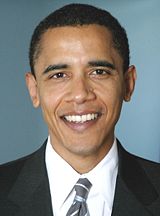 To date, the only candidate on either side that has appealed to me is Barack Obama. He first came to my attention (and to the attention of many) through his speech at the 2004 Democratic National Convention. Why do I like him so much? Because he cuts through the bullshit and supposes a United States that is actually united and not split in two. From the aforementioned speech:
To date, the only candidate on either side that has appealed to me is Barack Obama. He first came to my attention (and to the attention of many) through his speech at the 2004 Democratic National Convention. Why do I like him so much? Because he cuts through the bullshit and supposes a United States that is actually united and not split in two. From the aforementioned speech:
The pundits like to slice-and-dice our country into Red States and Blue States; Red States for Republicans, Blue States for Democrats. But I’ve got news for them too. We worship an awesome God in the Blue States, and we don’t like federal agents poking around in our libraries in the Red States. We coach Little League in the Blue States and yes, we got some gay friends in the Red States. There are patriots who opposed the war in Iraq and patriots who supported the war in Iraq. We are one people, all of us pledging allegiance to the stars and stripes, all of us defending the United States of America.
Right on.
I admit that Obama’s dream of unity may be a fantasy. The United States was built on a divided platform. Despite what some would have you believe, there’s rarely been a unity of purpose in this country. Our Founding Fathers did not all stand for the same thing, and when people claim otherwise they’re either ignorant or willfully trying to deceive you.
Still: Unity — that’s a nice goal. I like it. So Barack Obama has been my candidate of choice. Everything I’ve read by or about him has re-affirmed this. He’s an intelligent, thoughtful man. He truly believes in building unity, not just politically, but in daily life. When I listened to Rush Limbaugh a few weeks ago, he was ranting about how those who support Obama do so out of “white guilt” (or was it “Liberal guilt” — I can’t remember). This is ludicrous. Most of the time, I barely remember that Obama is black, and it has no bearing on whether I like him and will vote for him. (Rush used to argue that women voted for Clinton because they thought he was sexy, which is just as stupid.)
But I didn’t start this post because of Rush Limbaugh or Barack Obama. I started this post because I just read a piece this morning that has put a Republican Presidential candidate on my radar. I have no idea who Ron Paul is but I’m going to find out. Here’s a piece from FoxNews.com. Radley Balko writes:
 The reaction to the showdown between Rep. Ron Paul and former New York City Mayor Rudy Giuliani has been fascinating. Paul suggested that the recent history of U.S. foreign policy endeavors overseas may have had something to do with terrorists’ willingness to come to America, live here for several months, then give their lives to kill as many Americans as possible.
The reaction to the showdown between Rep. Ron Paul and former New York City Mayor Rudy Giuliani has been fascinating. Paul suggested that the recent history of U.S. foreign policy endeavors overseas may have had something to do with terrorists’ willingness to come to America, live here for several months, then give their lives to kill as many Americans as possible.
Perhaps, Paul suggested, the 15-year presence of the U.S. military forces in Muslim countries may have motivated them. For that, Giuliani excoriated him, calling it an “extraordinary statement,” adding, “I don’t think I’ve heard that before.”
Let’s be blunt. Giuliani was either lying, or he hasn’t cracked a book in six years.
The “blowback” theory isn’t some fringe idea common only to crazy Sept. 11 conspiracy theorists. It doesn’t suggest that we “deserved” the Sept. 11 attacks, nor does it suggest we shouldn’t have retaliated against the people who waged them.
What it does say is that actions have consequences. When the Arab and Muslim world continually sees U.S. troops marching through Arab and Muslim backyards, U.S. trade sanctions causing Arab and Muslim suffering and U.S. bombs landing on Arab and Muslim homes, it isn’t difficult to see how Arabs could begin to develop a deep contempt for the U.S.
Why does this get my attention? Long-time readers know. I’ve been saying this same thing for nearly six years. On September 11th and 12th of 2001, I took it upon myself to do extensive research. I visited scores of web sites and printed out articles about Osama bin Laden and the Muslim complaints against the United States. I compiled a binder full of information. In April 2004, I posted a summary of this info in an entry entitled How did we get here?. At the time I wrote:
The results of this research still form the basis for my understanding of the situation in the Middle East. My opposition to U.S. involvement in Afghanistan and Iraq isn’t so much because I think our actions are evil — though I do think this — as I think they don’t address the core issues. The people we’re fighting are only going to be satisfied if we remove all of our presence from the Middle East and if we decrease our support for Israel.
[A] U.S. withdrawal is not going to appease anyone now. We’ve gone over and thrown our weight around too many times; now people might just fight back for the sake of fighting back. This is true. But at one time, it would have been a significant step toward pacifying the anger fomenting against our country.
The Middle East has been a source of cultural turmoil not just for decades, not just for centuries, but for millennia. Think about that. Millennia.
It’s ignorant to think that we can go over there with our military might and moral rectitude and somehow make things right. We’re better off worrying about our own neighborhood.
So when I hear that Ron Paul, a man I know nothing about, has the balls to stand up and speak the truth, he earns my attention. Not one politician has said this stuff in the past six years. I’m going to go read more about him. Between Paul and Obama, I may actually break from my stance of always voting for the strongest third-party Presidential candidate.
Well, maybe not.

 next to particular favorites. (Happy stars reflect my personal taste, which probably is the opposite of yours.)
next to particular favorites. (Happy stars reflect my personal taste, which probably is the opposite of yours.)
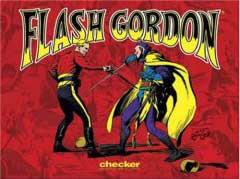
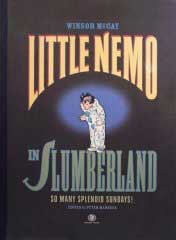
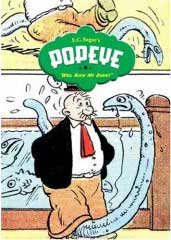
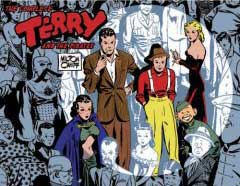

![The front border bed [photo of the front border bed, which is filled with colorful flowers]](http://www.foldedspace.org/photos/frontborderbed.jpg)
![This rose is called 'gold medal' [photo of a yellow rose]](http://www.foldedspace.org/photos/goldmedalrose.jpg)
![Busy as a bzz bzz bee [photo of a honeybee flying among the lavendar]](http://www.foldedspace.org/photos/beeinflight.jpg)
![Tasty nectar [photo of honey bee on lavender]](http://www.foldedspace.org/photos/lavenderbee.jpg)
![Rhonda, Celeste, and Kris displaying their fetching wiggles [photo of Rhonda, Celeste, and Kris posing as cowgirls]](http://www.foldedspace.org/images/cowgirlsoftrace.jpg)
 To date, the only candidate on either side that has appealed to me is
To date, the only candidate on either side that has appealed to me is  The reaction to the showdown between Rep. Ron Paul and former New York City Mayor Rudy Giuliani has been fascinating. Paul suggested that the recent history of U.S. foreign policy endeavors overseas may have had something to do with terrorists’ willingness to come to America, live here for several months, then give their lives to kill as many Americans as possible.
The reaction to the showdown between Rep. Ron Paul and former New York City Mayor Rudy Giuliani has been fascinating. Paul suggested that the recent history of U.S. foreign policy endeavors overseas may have had something to do with terrorists’ willingness to come to America, live here for several months, then give their lives to kill as many Americans as possible.